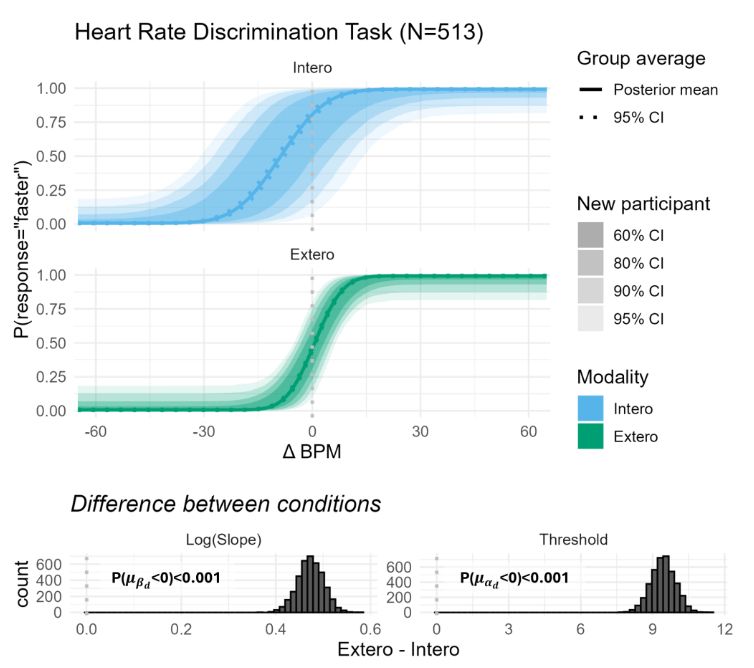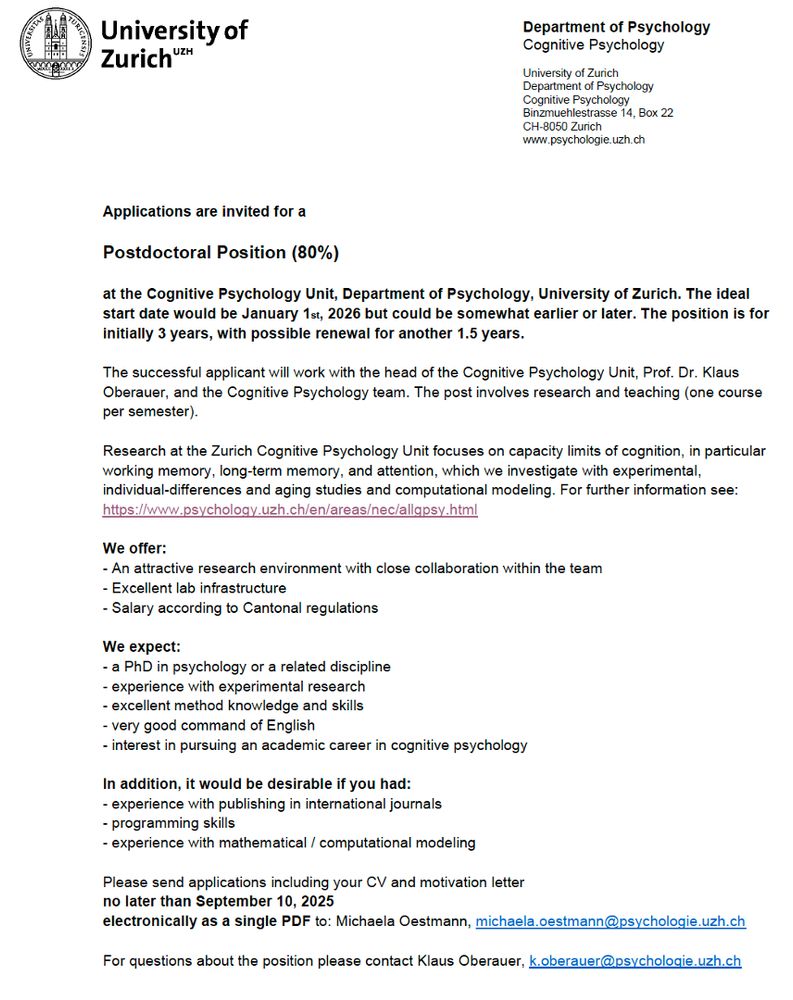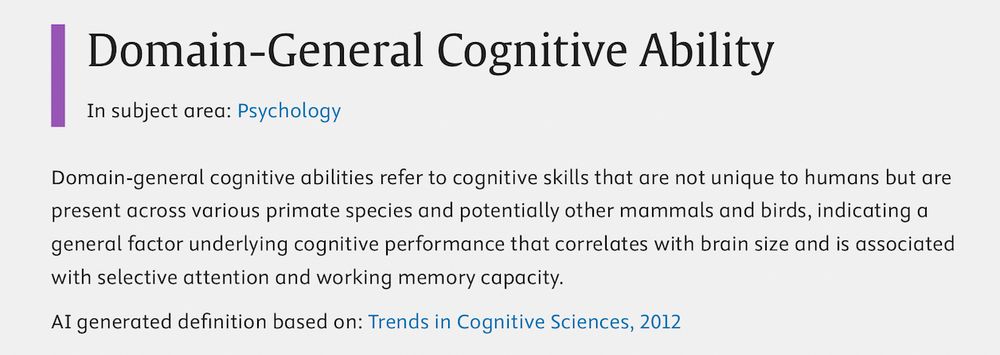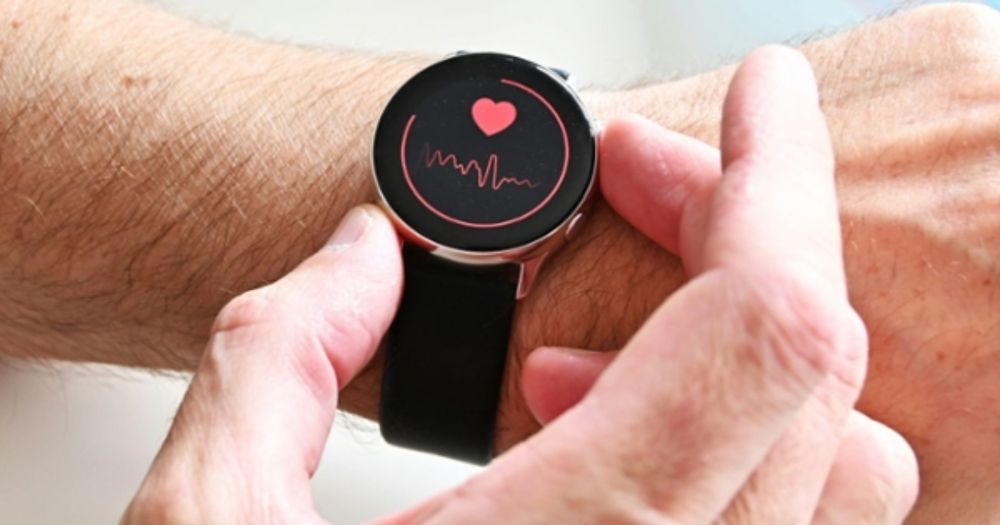Sam Verschooren
@samversc.bsky.social
Postdoctoral fellow at Artctic University of Norway; formerly MPI CBS, Humboldt, Ghent, and Duke University
External and internal attention; mind wandering; interoception and control over internal body
https://samverschooren.github.io
External and internal attention; mind wandering; interoception and control over internal body
https://samverschooren.github.io
Pinned
Sam Verschooren
@samversc.bsky.social
· Oct 14
OSF
osf.io
Some great news to start the week: our paper on ideomotor theory and voluntary control over autonomic processes inside the body (“interoactions”) was accepted in Psych Review!🧠💓🥳
With @mgblr.bsky.social and Marcel Brass
Preprint: osf.io/preprints/ps...
#PsychSciSky #cogpsych #interoception
With @mgblr.bsky.social and Marcel Brass
Preprint: osf.io/preprints/ps...
#PsychSciSky #cogpsych #interoception
Reposted by Sam Verschooren
Now out in #ScienceAdvances: @baiweiliu.bsky.social and I ask how internal (goal) and external (sensory) selection are coordinated during visual search. The key insight: internal and external selection are not inherently serial, but may develop in parallel in the human brain: doi.org/10.1126/scia...

Concurrent selection of internal goals and external sensations during visual search
Internal and external selection processes can codevelop in time to yield efficient search behavior.
doi.org
November 10, 2025 at 12:00 PM
Now out in #ScienceAdvances: @baiweiliu.bsky.social and I ask how internal (goal) and external (sensory) selection are coordinated during visual search. The key insight: internal and external selection are not inherently serial, but may develop in parallel in the human brain: doi.org/10.1126/scia...
Reposted by Sam Verschooren
Reposted by Sam Verschooren
These are great news for #interoception research www.sciencedaily.com/releases/202...

Scientists launch $14.2 million project to map the body’s “hidden sixth sense”
Inside your body, an intricate communication network constantly monitors breathing, heart rate, digestion, and immune function — a hidden “sixth sense” called interoception. Now, Nobel laureate Ardem ...
www.sciencedaily.com
October 25, 2025 at 11:40 PM
These are great news for #interoception research www.sciencedaily.com/releases/202...
Reposted by Sam Verschooren
📣 Out in TINS (@cp-trendsneuro.bsky.social):
Neural processing is often described as either externally or internally directed. In our new Forum article, we (@freekvanede.bsky.social & Kia Nobre) propose a multilevel framework for conceptualising external and internal continua of brain processes.
Neural processing is often described as either externally or internally directed. In our new Forum article, we (@freekvanede.bsky.social & Kia Nobre) propose a multilevel framework for conceptualising external and internal continua of brain processes.

October 19, 2025 at 7:44 AM
📣 Out in TINS (@cp-trendsneuro.bsky.social):
Neural processing is often described as either externally or internally directed. In our new Forum article, we (@freekvanede.bsky.social & Kia Nobre) propose a multilevel framework for conceptualising external and internal continua of brain processes.
Neural processing is often described as either externally or internally directed. In our new Forum article, we (@freekvanede.bsky.social & Kia Nobre) propose a multilevel framework for conceptualising external and internal continua of brain processes.
Reposted by Sam Verschooren
Nice things for the
**13th #MindBrainBody Symposium 2026**
happening under the hood 😊
Save the date: 📆 March 9-11, 2026 (Berlin and virtual)
Stay tuned for the call and announcement!
(For info about the last 12 MBBSymposia: mindbrainbody.de)
#interoception #neuroskyence
**13th #MindBrainBody Symposium 2026**
happening under the hood 😊
Save the date: 📆 March 9-11, 2026 (Berlin and virtual)
Stay tuned for the call and announcement!
(For info about the last 12 MBBSymposia: mindbrainbody.de)
#interoception #neuroskyence

October 17, 2025 at 9:39 AM
Nice things for the
**13th #MindBrainBody Symposium 2026**
happening under the hood 😊
Save the date: 📆 March 9-11, 2026 (Berlin and virtual)
Stay tuned for the call and announcement!
(For info about the last 12 MBBSymposia: mindbrainbody.de)
#interoception #neuroskyence
**13th #MindBrainBody Symposium 2026**
happening under the hood 😊
Save the date: 📆 March 9-11, 2026 (Berlin and virtual)
Stay tuned for the call and announcement!
(For info about the last 12 MBBSymposia: mindbrainbody.de)
#interoception #neuroskyence
Reposted by Sam Verschooren
TIL that Dale invented the heartbeat counting task, not Schandry, and that it was known from the very first study that people underestimated their heart rate. It was orginally called a heart rate estimation task! journals.sagepub.com/doi/pdf/10.2...

October 17, 2025 at 4:57 AM
TIL that Dale invented the heartbeat counting task, not Schandry, and that it was known from the very first study that people underestimated their heart rate. It was orginally called a heart rate estimation task! journals.sagepub.com/doi/pdf/10.2...
Reposted by Sam Verschooren
Happy also to chat about our Brain-Body Analysis Special Interest Group (BBSIG) pipelines for preprocessing and analysing ECG, PPG and respiration (soon), openly available and ready-to-use with BIDS data as Jupyter Notebooks 🫀🫁
Work of +20 wonderful collaborators! ✨
📑 Documentation: www.bbsig.de
Work of +20 wonderful collaborators! ✨
📑 Documentation: www.bbsig.de

October 16, 2025 at 3:17 PM
Happy also to chat about our Brain-Body Analysis Special Interest Group (BBSIG) pipelines for preprocessing and analysing ECG, PPG and respiration (soon), openly available and ready-to-use with BIDS data as Jupyter Notebooks 🫀🫁
Work of +20 wonderful collaborators! ✨
📑 Documentation: www.bbsig.de
Work of +20 wonderful collaborators! ✨
📑 Documentation: www.bbsig.de
Reposted by Sam Verschooren
Neural sensitivity to the heartbeat is modulated by fluctuations in affective arousal during spontaneous thought

Neural sensitivity to the heartbeat is modulated by fluctuations in affective arousal during spontaneous thought
Spontaneous thoughts, occupying much of one’s awake time in daily life, are often colored by emotional qualities. While spontaneous thoughts have been associated with various neural correlates, the re...
www.jneurosci.org
October 13, 2025 at 7:09 AM
Neural sensitivity to the heartbeat is modulated by fluctuations in affective arousal during spontaneous thought
Reposted by Sam Verschooren
In some way, it's trivial:
The #brain & the rest of the #body (e.g. the #heart) are coupled.
Yet, we spelled it out
w/ A. Villringer & V. Nikulin for current scientists (below)
w/ @martager.bsky.social @agatapatyczek.bsky.social @el-rei.bsky.social for future scientists bsky.app/profile/mart...
The #brain & the rest of the #body (e.g. the #heart) are coupled.
Yet, we spelled it out
w/ A. Villringer & V. Nikulin for current scientists (below)
w/ @martager.bsky.social @agatapatyczek.bsky.social @el-rei.bsky.social for future scientists bsky.app/profile/mart...
'Brain–body states as a link between cardiovascular and mental health'
by Arno Villringer, Vadim Nikulin & Michael Gaebler @mbe-lab.bsky.social @michaelgaebler.com @mpicbs.bsky.social sky.social
www.cell.com/trends/neuro...
by Arno Villringer, Vadim Nikulin & Michael Gaebler @mbe-lab.bsky.social @michaelgaebler.com @mpicbs.bsky.social sky.social
www.cell.com/trends/neuro...


September 25, 2025 at 7:43 AM
In some way, it's trivial:
The #brain & the rest of the #body (e.g. the #heart) are coupled.
Yet, we spelled it out
w/ A. Villringer & V. Nikulin for current scientists (below)
w/ @martager.bsky.social @agatapatyczek.bsky.social @el-rei.bsky.social for future scientists bsky.app/profile/mart...
The #brain & the rest of the #body (e.g. the #heart) are coupled.
Yet, we spelled it out
w/ A. Villringer & V. Nikulin for current scientists (below)
w/ @martager.bsky.social @agatapatyczek.bsky.social @el-rei.bsky.social for future scientists bsky.app/profile/mart...
Reposted by Sam Verschooren
Interested in brain-body interactions but unsure where to start?
🎮 Choose your character
👩🏻🔬👨🏽🔬 Current scientists: a new review by @michaelgaebler.com A. Villringer & V. Nikulin
🧒🏼👧🏾 Future scientists (and people of all ages): our scicomm article with @agatapatyczek.bsky.social & @el-rei.bsky.social
🎮 Choose your character
👩🏻🔬👨🏽🔬 Current scientists: a new review by @michaelgaebler.com A. Villringer & V. Nikulin
🧒🏼👧🏾 Future scientists (and people of all ages): our scicomm article with @agatapatyczek.bsky.social & @el-rei.bsky.social
In some way, it's trivial:
The #brain & the rest of the #body (e.g. the #heart) are coupled.
Yet, we spelled it out
w/ A. Villringer & V. Nikulin for current scientists (below)
w/ @martager.bsky.social @agatapatyczek.bsky.social @el-rei.bsky.social for future scientists bsky.app/profile/mart...
The #brain & the rest of the #body (e.g. the #heart) are coupled.
Yet, we spelled it out
w/ A. Villringer & V. Nikulin for current scientists (below)
w/ @martager.bsky.social @agatapatyczek.bsky.social @el-rei.bsky.social for future scientists bsky.app/profile/mart...
'Brain–body states as a link between cardiovascular and mental health'
by Arno Villringer, Vadim Nikulin & Michael Gaebler @mbe-lab.bsky.social @michaelgaebler.com @mpicbs.bsky.social sky.social
www.cell.com/trends/neuro...
by Arno Villringer, Vadim Nikulin & Michael Gaebler @mbe-lab.bsky.social @michaelgaebler.com @mpicbs.bsky.social sky.social
www.cell.com/trends/neuro...
September 25, 2025 at 10:42 AM
Interested in brain-body interactions but unsure where to start?
🎮 Choose your character
👩🏻🔬👨🏽🔬 Current scientists: a new review by @michaelgaebler.com A. Villringer & V. Nikulin
🧒🏼👧🏾 Future scientists (and people of all ages): our scicomm article with @agatapatyczek.bsky.social & @el-rei.bsky.social
🎮 Choose your character
👩🏻🔬👨🏽🔬 Current scientists: a new review by @michaelgaebler.com A. Villringer & V. Nikulin
🧒🏼👧🏾 Future scientists (and people of all ages): our scicomm article with @agatapatyczek.bsky.social & @el-rei.bsky.social
Reposted by Sam Verschooren
Bidirectional or integrated state?
Some food for thought about brain-body interaction in this concept paper by my supervisors Arno Villringer @michaelgaebler.com and Vadim Nikulin.
Some food for thought about brain-body interaction in this concept paper by my supervisors Arno Villringer @michaelgaebler.com and Vadim Nikulin.
'Brain–body states as a link between cardiovascular and mental health'
by Arno Villringer, Vadim Nikulin & Michael Gaebler @mbe-lab.bsky.social @michaelgaebler.com @mpicbs.bsky.social sky.social
www.cell.com/trends/neuro...
by Arno Villringer, Vadim Nikulin & Michael Gaebler @mbe-lab.bsky.social @michaelgaebler.com @mpicbs.bsky.social sky.social
www.cell.com/trends/neuro...


September 24, 2025 at 12:29 PM
Bidirectional or integrated state?
Some food for thought about brain-body interaction in this concept paper by my supervisors Arno Villringer @michaelgaebler.com and Vadim Nikulin.
Some food for thought about brain-body interaction in this concept paper by my supervisors Arno Villringer @michaelgaebler.com and Vadim Nikulin.
Reposted by Sam Verschooren
How do we update our predictions when our environment changes?
The hippocampus rapidly integrates previously distinct sequences to support updated predictions.
Proud of this work with Hannah Tarder-Stoll & @chrisbaldassano.bsky.social!
www.biorxiv.org/content/10.1...
The hippocampus rapidly integrates previously distinct sequences to support updated predictions.
Proud of this work with Hannah Tarder-Stoll & @chrisbaldassano.bsky.social!
www.biorxiv.org/content/10.1...

The Hippocampus Rapidly Integrates Sequence Representations During Novel Multistep Predictions
Memories for temporally extended sequences can be used adaptively to predict future events on multiple timescales, a function that relies on the hippocampus. For such predictions to be useful, they sh...
www.biorxiv.org
September 16, 2025 at 1:41 PM
How do we update our predictions when our environment changes?
The hippocampus rapidly integrates previously distinct sequences to support updated predictions.
Proud of this work with Hannah Tarder-Stoll & @chrisbaldassano.bsky.social!
www.biorxiv.org/content/10.1...
The hippocampus rapidly integrates previously distinct sequences to support updated predictions.
Proud of this work with Hannah Tarder-Stoll & @chrisbaldassano.bsky.social!
www.biorxiv.org/content/10.1...
Reposted by Sam Verschooren
Check out our new article for young readers (ages 8-15) on heart-brain interactions and interoception! 🧠🫀
I had so much fun co-writing this with @agatapatyczek.bsky.social @el-rei.bsky.social with the support of @michaelgaebler.com ✍️
👉 Share it widely with curious young minds
Yay for #scicomm ✨
I had so much fun co-writing this with @agatapatyczek.bsky.social @el-rei.bsky.social with the support of @michaelgaebler.com ✍️
👉 Share it widely with curious young minds
Yay for #scicomm ✨
🧠🫀 New from our lab on Frontiers for Young Minds:
Ever wondered how the heart and brain communicate? Think the heart as the drummer 🥁 & the brain as the singer 🎤 keeping the body's band in tune!
Read here (for ages 8–15): kids.frontiersin.org/articles/10.3389/frym.2025.1536787/full
[1/2]
Ever wondered how the heart and brain communicate? Think the heart as the drummer 🥁 & the brain as the singer 🎤 keeping the body's band in tune!
Read here (for ages 8–15): kids.frontiersin.org/articles/10.3389/frym.2025.1536787/full
[1/2]

The Body’s Band: How Heart and Brain Communicate
Illustration of a person with vitiligo practicing yoga, sitting cross-legged and stretching an arm over their head. In a thought bubble, a smiling brain sings into a microphone and a heart plays a dru...
www.frontiersin.org
September 12, 2025 at 8:26 AM
Check out our new article for young readers (ages 8-15) on heart-brain interactions and interoception! 🧠🫀
I had so much fun co-writing this with @agatapatyczek.bsky.social @el-rei.bsky.social with the support of @michaelgaebler.com ✍️
👉 Share it widely with curious young minds
Yay for #scicomm ✨
I had so much fun co-writing this with @agatapatyczek.bsky.social @el-rei.bsky.social with the support of @michaelgaebler.com ✍️
👉 Share it widely with curious young minds
Yay for #scicomm ✨
Reposted by Sam Verschooren
New preprint! We are pleased to share our Hierarchical Bayesian framework for Interoceptive Psychophysics! Implemented in rstan, we provide a complete suite of tools spanning model comparison, parameter recovery, multifactor designs, power analysis, and more! 🎯 www.biorxiv.org/content/10.1...


September 2, 2025 at 8:09 AM
New preprint! We are pleased to share our Hierarchical Bayesian framework for Interoceptive Psychophysics! Implemented in rstan, we provide a complete suite of tools spanning model comparison, parameter recovery, multifactor designs, power analysis, and more! 🎯 www.biorxiv.org/content/10.1...
Reposted by Sam Verschooren
Happy to share a new preprint in which @paulbuerkner.com and I introduce a novel model-based approach for precisely estimating the onset and offset of M/EEG effects!
www.biorxiv.org/content/10.1...
www.biorxiv.org/content/10.1...

Precise temporal localisation of M/EEG effects with Bayesian generalised additive multilevel models
Time-resolved electrophysiological measurements such as those obtained through magneto- and electroencephalography (M/EEG) offer a unique window onto the neural activity underlying cognitive processes...
www.biorxiv.org
September 1, 2025 at 6:39 AM
Happy to share a new preprint in which @paulbuerkner.com and I introduce a novel model-based approach for precisely estimating the onset and offset of M/EEG effects!
www.biorxiv.org/content/10.1...
www.biorxiv.org/content/10.1...
Reposted by Sam Verschooren
The deadline for submissions for the 2025 Neuroscience of Pure Awareness Prize (€20k) is soon: Sept 30th. For the best contribution to neuroscience that substantially advances our understanding of the neural mechanisms underlying the experience of pure awareness. For details, see screenshot!

August 30, 2025 at 6:45 PM
The deadline for submissions for the 2025 Neuroscience of Pure Awareness Prize (€20k) is soon: Sept 30th. For the best contribution to neuroscience that substantially advances our understanding of the neural mechanisms underlying the experience of pure awareness. For details, see screenshot!
Reposted by Sam Verschooren
the tldr of my thread is that, interoceptive sensing at rest has no relationship to mental health symptoms, and we think this is likely because we need to measure interoception during and after arousal, close in time to symptoms, with ecological measures.
Are interoception and mental health linked? Many assume so, with interoception even described as a psychiatric “p-factor.” But in our latest preprint, we were surprised to find little evidence for such a connection. www.medrxiv.org/content/10.1... 🧵 Thread with our reflections on the matter 👇

Interoceptive Ability is Unrelated to Mental Health Symptoms: Evidence From a Large Scale Multi-Domain Psychophysical Investigation
Interoception-the sensing and perception of the internal viscera-is widely cast as a transdiagnostic mechanism linking brain-body interaction to mental illness. Prevailing models propose that altered ...
www.medrxiv.org
August 28, 2025 at 7:01 AM
the tldr of my thread is that, interoceptive sensing at rest has no relationship to mental health symptoms, and we think this is likely because we need to measure interoception during and after arousal, close in time to symptoms, with ecological measures.
Reposted by Sam Verschooren
I can't quite believe it – I got a new NSF grant! 😲🤯
I'm incredibly grateful to the program officers & reviewers for their dedication and efforts to keep science going 🌟👏🏼
So, I'll be hiring! Looking for a postdoc to study competition in memory-guided attention. See flyer for details! 🎉
I'm incredibly grateful to the program officers & reviewers for their dedication and efforts to keep science going 🌟👏🏼
So, I'll be hiring! Looking for a postdoc to study competition in memory-guided attention. See flyer for details! 🎉
![[Aly Lab Logo: schematic of brain in shades of blue with two cut-out seahorses facing each other]. Postdoctoral Position in the Aly Lab at UC Berkeley. We are recruiting a postdoctoral scholar to work on NSF-funded research examining competition and cooperation in memory-guided attention. The position will be supervised by Dr. Mariam Aly (https://www.alylab.org/) in the Department of Psychology at UC Berkeley. Candidates should have a PhD in Psychology, Neuroscience, Cognitive Science, or a related field, and expertise in studies of behavior as well as neuroimaging and/or eye tracking. This is a two-year position with a flexible start date. More details here: https://tinyurl.com/alylabpostdoc](https://cdn.bsky.app/img/feed_thumbnail/plain/did:plc:qyyyb45vdwvzmg5nppheyus3/bafkreiflybsnnzenqx3wk3somkmoo2vkjk3ljmlorujtweunhqucjxzoa4@jpeg)
August 22, 2025 at 6:04 PM
I can't quite believe it – I got a new NSF grant! 😲🤯
I'm incredibly grateful to the program officers & reviewers for their dedication and efforts to keep science going 🌟👏🏼
So, I'll be hiring! Looking for a postdoc to study competition in memory-guided attention. See flyer for details! 🎉
I'm incredibly grateful to the program officers & reviewers for their dedication and efforts to keep science going 🌟👏🏼
So, I'll be hiring! Looking for a postdoc to study competition in memory-guided attention. See flyer for details! 🎉
Reposted by Sam Verschooren
🚨 PostDoc Opening 🚨 The lab of Klaus Oberauer is looking for a new postdoc, starting end of this/beginning next year. Research focus is #cognition, #workingmemory, #methods and #computationalmodeling or anything in that direction. I cannot highlight ENOUGH how great it is to work in this lab 🥰🤓

August 6, 2025 at 12:05 PM
🚨 PostDoc Opening 🚨 The lab of Klaus Oberauer is looking for a new postdoc, starting end of this/beginning next year. Research focus is #cognition, #workingmemory, #methods and #computationalmodeling or anything in that direction. I cannot highlight ENOUGH how great it is to work in this lab 🥰🤓
Reposted by Sam Verschooren
Imagine this at scale, unchecked: how is this not a fundamental threat to science?
(Also, this is a perfect example of how irrational and ironic it is for large publishing companies to use “AI” to generate content that is of a much lower quality than the human-created content they already own.)
(Also, this is a perfect example of how irrational and ironic it is for large publishing companies to use “AI” to generate content that is of a much lower quality than the human-created content they already own.)
Was looking into what Cognitive Scientists mean by ‘domain-general’ cognition, and then hit upon this. This is definitely NOT how we use that term.
Tip: read the last sentence to understand what went wrong here.
Sigh.
Tip: read the last sentence to understand what went wrong here.
Sigh.

August 5, 2025 at 7:20 AM
Imagine this at scale, unchecked: how is this not a fundamental threat to science?
(Also, this is a perfect example of how irrational and ironic it is for large publishing companies to use “AI” to generate content that is of a much lower quality than the human-created content they already own.)
(Also, this is a perfect example of how irrational and ironic it is for large publishing companies to use “AI” to generate content that is of a much lower quality than the human-created content they already own.)
Reposted by Sam Verschooren
1/2
Press release @unileiden.bsky.social about our upcoming JoPACS paper led by @bsiepe.bsky.social, showing that the overlap of similar constructs assessed via wearable vs EMA data is surprisingly low (n~850, 3 months).
www.universiteitleiden.nl/en/news/2025...
Press release @unileiden.bsky.social about our upcoming JoPACS paper led by @bsiepe.bsky.social, showing that the overlap of similar constructs assessed via wearable vs EMA data is surprisingly low (n~850, 3 months).
www.universiteitleiden.nl/en/news/2025...

Does your smartwatch say you’re stressed? It may often be wrong
Consumer grade smartwatches may not be as accurate as promised when measuring tiredness or stress. That conclusion is drawn by researchers Björn Siepe and Eiko Fried based on a comparison between smar...
www.universiteitleiden.nl
July 24, 2025 at 11:05 AM
1/2
Press release @unileiden.bsky.social about our upcoming JoPACS paper led by @bsiepe.bsky.social, showing that the overlap of similar constructs assessed via wearable vs EMA data is surprisingly low (n~850, 3 months).
www.universiteitleiden.nl/en/news/2025...
Press release @unileiden.bsky.social about our upcoming JoPACS paper led by @bsiepe.bsky.social, showing that the overlap of similar constructs assessed via wearable vs EMA data is surprisingly low (n~850, 3 months).
www.universiteitleiden.nl/en/news/2025...
Reposted by Sam Verschooren
We moved our symposium to a bigger room so we have a few more extra seats available now! Join us September 10th for our symosium on "Flexible Definitions of Cognitive Flexibility"
shengjiexu.ugent.be/CoCoFlex_Sem.... Poster or talk submission deadline is in two weeks: July 31st!
shengjiexu.ugent.be/CoCoFlex_Sem.... Poster or talk submission deadline is in two weeks: July 31st!
July 17, 2025 at 10:22 AM
We moved our symposium to a bigger room so we have a few more extra seats available now! Join us September 10th for our symosium on "Flexible Definitions of Cognitive Flexibility"
shengjiexu.ugent.be/CoCoFlex_Sem.... Poster or talk submission deadline is in two weeks: July 31st!
shengjiexu.ugent.be/CoCoFlex_Sem.... Poster or talk submission deadline is in two weeks: July 31st!
Impressive review on the knowns and unknowns of how the brain switches between external and internal attention :) Many exciting questions left to answer!
Out in @cp-neuron.bsky.social now! Kia and I argue that attention research would benefit from a stronger focus on how the brain shifts between external and internal attention. We outline competing hypotheses, review existing behavioral and neural findings, and highlight open questions.

How the brain shifts between external and internal attention
Focusing on relevant contents to guide adaptive behavior is a core property of the brain. For decades, scientists have investigated mechanisms to anti…
www.sciencedirect.com
July 17, 2025 at 9:40 AM
Impressive review on the knowns and unknowns of how the brain switches between external and internal attention :) Many exciting questions left to answer!
Reposted by Sam Verschooren
I'm preparing a public talk on the impact of digital technology on attention, and whether there is any evidence behind 'brain rot' (and help the public understand that researchers need public funds and support to work on this issue!). #cogsci, what message would you want the public to hear on this?
July 15, 2025 at 2:31 AM
I'm preparing a public talk on the impact of digital technology on attention, and whether there is any evidence behind 'brain rot' (and help the public understand that researchers need public funds and support to work on this issue!). #cogsci, what message would you want the public to hear on this?
The Healing Power of Gardens: Oliver Sacks on the Psychological and Physiological Consolations of Nature www.themarginalian.org/2019/05/27/o...

The Healing Power of Gardens: Oliver Sacks on the Psychological and Physiological Consolations of Nature
“In forty years of medical practice, I have found only two types of non-pharmaceutical ‘therapy’ to be vitally important for patients with chronic neurological diseases: music and…
www.themarginalian.org
July 10, 2025 at 6:33 AM
The Healing Power of Gardens: Oliver Sacks on the Psychological and Physiological Consolations of Nature www.themarginalian.org/2019/05/27/o...


